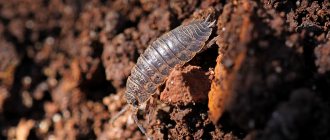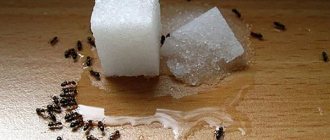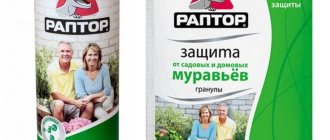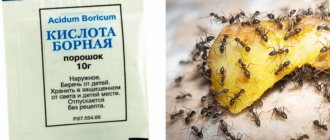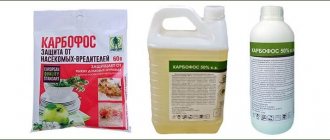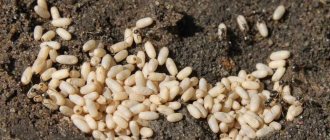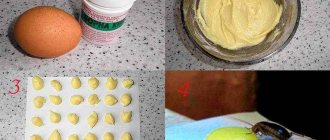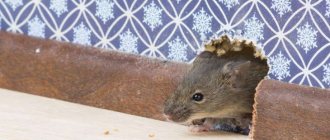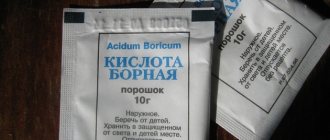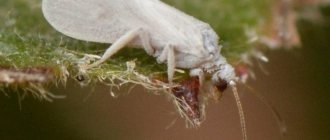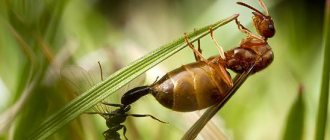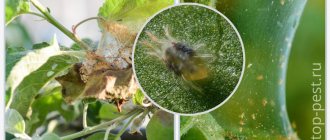Ammonia - a little chemistry
Ammonia is one of the most important products of the chemical industry; it is used in various areas of human activity.
It is also used to obtain ammonia. The fundamental difference between these products is that ammonia is a gaseous substance that liquefies at -33°C. Ammonia gas or “alkaline air” was obtained in 1774 by the English scientist J. Priestley. The chemical composition of the new substance was determined in 1785, at which time it received its name. There are several assumptions about where this name came from. One of them is associated with the name of the ancient Egyptian god Amon. During ritual ceremonies, believers sniffed ammonia, a white crystalline substance that releases ammonia when heated. The second version is the existence of the Ammon oasis in North Africa, located at the intersection of busy caravan routes. The constant presence of a large number of pack animals on its territory led to the accumulation of their waste products. Under the influence of high temperature, urea emits a pungent ammonia odor.
Ammonia Ammonia is an aqueous solution of ammonia, or rather ammonium hydroxide. In appearance it is a colorless transparent liquid with a pungent odor.
On a note!
In addition to its medical purposes, the product is often used by summer residents while working in the garden. This is explained by the fact that plants need nitrogen to actively grow green mass, set buds and form fruits. In ammonia, its mass reaches 82% of the total composition of the drug.
The high concentration of the alcohol solution, low price and cost-effectiveness of use are the factors that explain the high demand for the pharmaceutical product, as confirmed by consumer reviews.
Borax for ants
The substance in question is a derivative of boric acid . Borax was first obtained in the mid-18th century, and since then it has been constantly used in the chemical industry and in the field of combating various pests.
It is a white powder that is sold in many pharmacies and even hardware stores. Borax is much more lethal than boric acid due to its higher concentration . The smell is very unpleasant for ants; they will not come close to the treated areas. Thus, you should prepare appetizing baits using folk recipes for borax for ants. By the way, some of them were invented at the end of the 19th century.
- A little sugar and a little borax are poured into a plastic bottle cap. All this is poured with warm water and stirred until a dense mass is obtained. Such baits are placed near the ants' routes. Extinction begins within a couple of days. Before death, insects manage to infect their relatives, including the uterus.
- The boiled egg is kneaded, a teaspoon of sugar and the same amount of borax are added to the mixture. The mixture is kneaded, small balls are rolled out of it, which are placed in the area where the ants accumulate. Otherwise, the principle of operation is the same as the previous recipe.
- If you are working with a liquid solution of 20% borax, then for 1 glass of warm water you will need a teaspoon of toxic liquid. This is the optimal proportion, which is sufficient to quickly kill insects, but is completely harmless to people and pets. Use the resulting mixture to treat the baseboards, the area around the trash can and door jambs. It is best to use a small brush for this. When working in the garden, just pour the liquid onto the anthill.
There is no point in using borax in in an apartment - ants will not approach it. It makes sense to sprinkle the powder on the anthill or pour a few bubbles of solution onto it. In this case, you should cover the ground with sand or cover it with cellophane.
Why are ants dangerous?
Ammonia will not completely get rid of ants. It is almost impossible to eliminate these insects.
But by controlling their numbers, it will be possible to protect the harvest and create a comfortable atmosphere in the house. First, you need to understand how dangerous colonies of these insects are.
Ants in the garden
There are more than 14 thousand species of ants in the world. More than 260 species are distributed in Russia. Insects cause irreparable damage to garden crops, leading to a decrease in yield.
By making passages underground, small insects damage plant roots. Vegetable seedlings and young tree seedlings react particularly sensitively to the fruits of their vital activity.
Ants are predatory insects. But they do not disdain young leaves of seedlings and adult plants.
Ants on raspberries
Insects with a sweet tooth are not averse to eating sweet juicy raspberries and strawberries, as well as plums, apricots and other fruits. As a result, they become unsuitable for further storage.
Ants often settle in old stumps, contributing to their natural destruction. This behavior is undoubtedly beneficial.
Anthill on an old stump
But an increase in their population leads to the fact that small insects begin to colonize new places, choosing healthy trees as shelters. By gnawing tunnels in them, they destroy the wood, causing the death of the tree.
But the greatest danger to garden crops is aphids, which ants carry on their backs. Aphids secrete sugary juice - the favorite food of working insects.
Ants and aphids
Therefore, they transfer their food source from plant to plant, infecting the entire garden. Using ammonia against ants will also help get rid of aphids.
Ants in the house
Being very small and agile, ants can climb into living spaces. It is necessary to begin a merciless fight against the pest after detecting one individual - the scout ant.
Ant trail
Several factors contribute to this:
- Having a sting, ants can bite humans and animals;
- bites cause the development of allergic reactions;
- insect pests are carriers of many infectious diseases;
- Being omnivores, they spoil food by getting into bags of sugar, jars of honey and other food storage areas.
Insects cause concern to all inhabitants of the house. In just one night they are capable of completely destroying a small animal (turtle, hamster, etc.).
You can also read our article: How to quickly get rid of yellow ants, the best control methods
Pests
The use of ammonia and its derivatives as a fertilizer is not all the useful uses of the chemical. Using ammonia you can get rid of various pests that surround a person in everyday life and cause him concern.
Ants
Ammonia from ants
Domestic and garden species of ants are quite often found in the garden, greenhouse, and house. Using ammonia you can easily get rid of pests. The advantage of this effective method is its complete safety for humans. Ants have the ability to multiply quickly, so if you notice at least one “scout”, you should immediately begin to fight them.
Insects are not as harmless as they seem at first glance. They can destroy the harvest of berries and fruits, damage the roots and foliage of young plants, and reach the food available in the apartment. Pests, in search of “building materials,” gnaw through wooden structures and garden tree trunks, after which they become rotten and unusable.
On a note!
Ammonia in the garden helps get rid of green plant pests such as aphids and ants. The main role in this process is played by a sharp, specific smell, which scares away “lovers” of crops and flowers. It is necessary to combat pests competently, otherwise the queen ant will very quickly restore the number of insects in the chosen area.
Aphid
Ammonia for aphids
The appearance of an insect at home or in the garden threatens the viability of green spaces. Aphids can enter a person’s home with a beautiful bouquet. It is necessary to carry out pest control in any conditions, since one female is capable of producing approximately 100 larvae. If measures are not taken in time, then in a short period of time the voracious aphids will destroy your favorite indoor plants. A similar problem will affect cultural plantings in the country house and garden. Moving in entire colonies, pests leave behind lifeless plants. In this case, ammonia from ants and aphids will become an indispensable and effective remedy.
Important!
Ants feed on a sweet secretion called honeydew produced by aphids. Therefore, they protect pest populations and promote their reproduction. This “care” allows you to increase the amount of food. The symbiosis of insects is manifested in the fact that with the onset of the first cold weather, ants carry aphids to the anthill, and in the spring they return them to young shoots.
This fact indicates that fighting ants in the garden should be done simultaneously with the destruction of aphids, thereby depriving them of the first sources of food.
Pest control in the garden and in the house
Using ammonia in the garden
Popular advice will help you get rid of garden ants and aphids. You can eliminate and prevent the appearance of harmful insects using the following recipes that are safe for humans and the environment:
- Ammonia against ants in the garden. You should take 1 liter of water and dilute 100 ml of the drug in it. The prepared solution must be poured over the entire anthill. Before processing, it is advisable to remove the top layer of the structure or dig it with a shovel in order to get as close as possible to the queen’s den.
On a note!
The working solution is prepared only with filtered or boiled water. This will prevent the chemical reaction of ammonia and possible impurities.
- In order for insects to leave their lair at their summer cottage, it is necessary to take a cloth and soak it with a pharmaceutical preparation. Place the canvas on the anthill and cover it with polyethylene on top, then the anti-ant ammonia will not evaporate quickly. The unbearable smell will force insects to leave the dangerous place.
- To treat plants against aphids, you can use a composition prepared from 8 liters of water and 1 tablespoon of ammonia. Let the liquid sit for 30 minutes and spray the plants with it. Such a low concentration of ammonia will not harm the planting, but will destroy aphids.
- To prevent infection, ammonia from ants and aphids is used as follows: 10 liters of water are combined with 10 ml of ammonia solution. Once a week, trees and vegetation in the garden are treated with this composition. Crops should be watered strictly to the roots. This will not only repel pests, but will also be a good nitrogen fertilizer for gardening and vegetable gardens growing in beds.
During and after processing, the smell of ammonia will persist for some time. The aroma will disappear, and the effect achieved in the fight against ants and aphids will last for a long period.
Insects in search of food quite often climb into apartments or houses. Most of all, ants are attracted to the kitchen, with the products available there. Not everyone will decide to use chemicals in such a room. Ammonia will help remove dangerous parasites at home.
To do this, you need to dilute a pharmacy bottle of ammonia in a liter of water. The resulting solution is used to treat all kitchen surfaces and objects inside and out. The strong smell will disappear within half an hour, but the ants will smell it for a very long time. This disinfection must be carried out at the first sign of insects appearing in the room.
Using ammonia solution against pests and ants is an effective, simple and low-cost method. This is confirmed by the information people share on the Internet.
Possible causes of ant infestation
Before trying to get rid of uninvited guests, you should understand the reasons why insects visit residential premises. There are thief ants. Most often they enter houses in search of food and soon leave. Another thing is red ants; they appear for several reasons:
- their anthill is located in adjacent rooms;
- The house is rarely thoroughly cleaned, which creates ideal conditions for their reproduction;
- the pest was brought by owners or animals;
- they are looking for a place to live safely.
Anthill next door
In cases where the anthill is located in the neighborhood, one should expect that the parasites will stop by for a visit. Gradually, when the number of ants grows, they will need to look for new places to feed and live. Most likely, they will disperse into neighboring rooms to create new anthills.
Interesting! Ants prefer damp and poorly ventilated areas, such as basements. They are often attracted by garbage chutes that are equipped in multi-story buildings. In this case, they also end up in apartments nearby.
No general cleaning
In search of food, ants come to houses where they smell food and waste. Rare general cleaning, lack of disinfection in waste accumulation areas and damp rooms create ideal conditions for the life of parasites.
Brought by animals
Quite often, ants get into living quarters due to the carelessness of the owners and the fault of animals. The brought guest, having scouted out the conditions, will look for the way to the anthill. Moreover, if there is food for them in the house, then soon there will be a whole flock here. It's even worse if you bring a queen into the house. Then the room will become the new location of the anthill. Often, parasites enter a home during the moving process, when they hide in the cracks of furniture and other places.
Safe Habitat
When insects are poisoned in every possible way in their permanent habitats, they begin to look for a safe refuge. In such cases, all preventive measures should be used, preventing them from establishing themselves in their own premises.
Where do they appear in a private house?
Ants may appear in a private home if there is a natural area nearby. “Street” types of ants, as a rule, do not establish themselves in houses, but they can create problems in the garden. Others are able to settle in a country house, penetrating through cracks and the underground. Getting rid of ants in your home can be difficult if you don't know where the main anthill is located.
In the countryside and at the dacha in the summer, house ants can migrate from neighbors. For them, the space near the stove is especially attractive.
The effect of ammonia on furmicitides
Boric acid for ants
In the process of fighting ants, ammonia is often used, as it has a lethal effect on them. When exposed to ammonia, insects receive:
- fright - ammonia vapors repel insects, despite the fact that the drug evaporates quickly, insects feel it for a long period of time;
- swelling and paralysis of the digestive tract;
- severe burns;
- severe paralysis of the entire body.
What harm do ants do in the countryside?
Rapidly multiplying, colonies of insects literally occupy the entire territory available to them. At the same time, their nests are well hidden from human eyes, which makes it difficult to fight ants.
Ants are partial to sweets, so dacha food supplies and the harvest of sweet berries are at risk. To obtain “building materials,” ants gnaw holes in wooden structures, after which they require replacement or repair.
Damage from ants in the house
Having met one small ant in the kitchen, it is difficult to understand why they were given the majestic name “pharaoh ants”. Stock up on ammonia for ants, since after a lone scout ant in your house you can soon find entire ant trails.
These uninvited guests settle under baseboards and in other hard-to-reach places. Worker ants are very small, 2-2.5 mm. Due to their large numbers, they are able to fill the entire house. The harm from such a neighborhood is obvious:
In this case, ammonia will be an effective way to protect against ants in the apartment. For 1 liter of boiled water you need a 100 ml bottle of ammonia. This solution is used to wipe all surfaces, baseboards, tiles, and treat the inside surfaces of drawers and cabinets, trash cans and ventilation.
After airing the room, the smell of ammonia will disappear for humans, but the method works against ants, since their sense of smell is thousands of times stronger.
Harm to plants
On the other hand, if aphids appear in the garden, ants will soon appear. Using ammonia in the garden will help get rid of aphids and ants at the same time.
Where to buy ammonia
A solution of ammonia can be bought at almost any pharmacy, and in large packages - in specialized stores of goods used for disinfestation. The prices of this product depend on the manufacturer, packaging volume and quality.
The average cost is about 20 rubles. for 100 ml bottle. When purchasing, you should pay attention to the concentration of the solution in order to subsequently prepare the liquid for treatment correctly, avoiding chemical burns to the plants.
Important!
You should distinguish a 10% solution of ammonia and not confuse it with ammonia, which is ammonium chloride and is used in agriculture! The latter is not recommended for private individuals.
Advantages and disadvantages of using ammonia
Ammonia is a leading use in insect control, but it also has its advantages and disadvantages.
Among the advantages:
- fast acting drug;
- used as fertilizer for vegetation;
- safely;
- insects disappear after two treatments with the solution;
- affordable price.
Disadvantages:
- with a high level of nitrogen in the soil, the plant may simply stop growing;
- the smell is unstable and disappears quickly;
- it is ineffective when using tall trees, since the places are hard to reach and the spray pressure will not be enough;
- use of protective equipment (gloves, mask and goggles);
- Inhaling ammonia vapor can make a person feel unwell.
Let's celebrate! To ensure that the shortcomings of the product do not affect its use, it is enough to follow simple rules of use.
How to use it correctly?
Ammonia is a necessary aid in any area. This folk recipe helps remove insects with virtually no risk to plants and the human body.
An important condition for working with solutions is the use of protective equipment. You should remember to take precautions and use the solution only in well-ventilated areas, wearing gloves, goggles and a mask.
Attention! Do not mix chlorine with ammonia.
What will you need?
It must be remembered that ammonia concentrate can cause burns to the skin and mucous membranes. It is also dangerous to breathe in the fumes as they can cause lung problems. The first thing you need to do is acquire the protective equipment required for safe use. Skin, eyes and respiratory tract should be protected.
Depending on the scale of processing, you need to prepare:
- gauze bandage;
- gloves;
- spray bottle (watering can or bucket);
- water;
- soap base.
Spray
As a rule, it is needed when there is a fight not only against ants, but also against aphids, which they actively spread. With its help you can poison insects on the foliage and trunks of tall trees and medium-sized plants.
Gauze bandage
When using an ammonia-based product, the first step is to protect your respiratory tract. A gauze bandage can prevent steam from entering the body.
Gloves
Also a mandatory element of protection are latex or cotton gloves with rubberized palms and fingers. It is best that their height is maximum.
Bucket
It is best to use plastic containers to prevent ammonia from interacting with metals. The use of buckets will be needed when fighting parasites that destroy the root system of plants.
Soap
Typically, soap is intended to help the product stick to foliage and other surfaces. The use of “adhesive” allows you to protect the garden and other areas from uninvited guests for a long time. Any soap, shampoo or dish detergent can be used as “adhesives”.
Water
If you plan to add more than just homemade ammonia to the solutions, you should use boiled water. In this case, ammonia will not give any extraneous reactions.
Recipes for using ammonia
To show how to use ammonia against ants, here are several recipes.
Death from ammonia fumes
To remove an anthill from a site you need:
- wet the cloth with pharmaceutical alcohol;
- place the flap on the anthill and cover the top with a bag;
- wait a few days until ammonia completely disappears from the air.
Death by sugar
To understand how to get rid of ants with ammonia, you should familiarize yourself with the following recipe:
- take 10 liters of heated, but not hot water;
- dissolve a spoonful of ammonia and sugar in the liquid in a ratio of 3 to 5;
- Irrigate all infected bushes.
Death by Ash
Wood ash
To prepare the mixture you need:
- 2 tablespoons of wood ash should be diluted in 10 liters of water;
- leave for a day to infuse;
- add a spoonful of soap and 2 ammonia to the resulting solution;
- Mix the mixture thoroughly and water the beds where aphids live well.
Water death
To prepare the mixture you need:
- dilute 50 ml of alcohol in 4 liters of water;
- add grated baby soap to the solution;
- Water flowers and flowering plants with the mixture.
Water and ammonia
Ants are garden and vegetable pests
One of the most common pests in the garden and vegetable garden are black ants, which set up anthills in the middle of the beds and create their own “farms” for growing aphids directly on plants: bushes, trees and garden crops. As a result of active reproduction, aphids and ants cause significant harm to plants: they spoil the root system, “make holes” in leaves and shoots, eat up the ovaries of flowers and vegetables, etc.
To completely defeat the ants, it is necessary to destroy the multiplied aphids. One of the harmless and highly effective methods is to use ammonia against ants and aphids. This method will help get rid of two pests at once.
How to use
When removing aphids and ants from an area, ammonia is good because it does not accumulate in the soil and fruits. Therefore, this product can be used throughout the growing season: from the initial germination of crops to the period of fruit ripening, as well as after harvesting. Be sure to add soap or shampoo to solutions with ammonia to increase the effectiveness of the drugs and give them sticky properties.
To properly spray bushes and trees with solutions containing ammonia, you will need the following materials and equipment:
- Spray bottle . Its volume depends on the number of green spaces requiring treatment. It is also worth paying attention to how to treat currants with ammonia in the same way. Using a plant spray
- Gauze bandage . This remedy will protect your respiratory tract from getting caustic ammonia into it.
- Gloves.
- A bucket to dilute the solution with the required concentration.
- Actually, ammonia itself . We recommend purchasing it in garden stores - the volume of bottles there is much larger, so the cost of processing will be more economical.
- Soap . Take either household or tar, since these types have the highest antibacterial and disinfectant characteristics. You can use laundry soap against aphids on roses.
- Water.
Using the simple materials listed above, you can properly treat your garden with ammonia from aphids and ants.
Cooking methods
Let's find out how you can prepare solutions with ammonia to fight aphids and ants.
Against ants
To implement this method, take a liter of boiling water and add 100 ml of ammonia to it. The resulting mixture, while it is still hot, is poured over the anthill. To make the effect more pronounced, you can pry the insects’ home with a shovel. But this information will help you understand how to poison ants in the garden, and what the best means are.
Fighting ants
Standard solution against aphids
This composition is prepared in most cases when it is necessary to combat aphids. In this case, take 60 ml of ammonia per bucket of water (10 ml), and add a quarter of a piece of soap. All components are mixed, it is necessary to ensure complete dissolution of the soap. Then the spray bottle is filled with the resulting composition, and the bushes are processed.
Standard solution against aphids
Sugar solution
Instead of soap, you can add sugar to the spray solution, which in its liquid state also has sticky properties. To prepare such a sweet composition, add 3 tbsp to a bucket of warm water. tablespoons of ammonia and 5 tablespoons of granulated sugar. You need to mix all the components until they dissolve, after which you can pour the solution into a spray bottle and use it for spraying. It will also be useful to learn about how to fertilize strawberries with ammonia.
Sugar solution
Instructions for using ammonia
Millet from ants in a summer cottage
When using alcohol against aphids or ants, you should take the following steps:
- inspect the bushes and cut off diseased leaves and shoots, burning them afterwards;
- prepare a solution: dissolve 1 laundry soap and 100 ml of ammonia in 10 liters of water; it is necessary to obtain a homogeneous mass;
- spray each bush with the mixture;
- repeat the procedure once a month;
- Avoid watering treated plants for several days.
Important! The process of removing aphids from plants is recommended to be carried out in the evening (for the safety of beneficial insects), for 14 working days with a break of 2 weekends.
Prevention
As a preventive measure against aphids and ants, you can spray the plants every week with the following solution: 15 ml of ammonia per bucket of water. In addition to spraying, you can also water plants with this composition to compensate for the lack of nitrogen in the soil.
Rules for the procedure
It is necessary to treat plants against aphids with ammonia for at least ten days, with a break between treatments of one or two days.
It is recommended to spray in the evening, as at this time the risk of damage to aphids and beneficial insects is reduced.
Before spraying bushes and trees, the latter should be carefully inspected. Preliminary cutting of shoots and foliage damaged by aphids will increase the effectiveness of treatment. After cutting, be sure to burn this biomaterial; do not leave it on the site, as aphids can reproduce again.
A one-time treatment with ammonia will not bring the desired effect. The substance is not so aggressive and potent that one treatment is enough. But here you have to choose: either use chemicals with a strong damaging effect, but harmful to nature, or natural preparations - not so effective and instant, but safe for plants and the entire environment. By clicking on the link you can find out what the recipe for onion flies with ammonia looks like.
After treating plants with ammonia, they should not be watered for several days.
Ammonia can be used as a spring preventative spraying of the garden against aphids. Before the procedure, it is necessary to carefully remove all organic remains from the previous season: fallen leaves, branches, old grass - all debris where aphid larvae may be located. Collected bioresidues must be burned and not thrown away. Repeat preventive spraying at least three times. But you can find out what to water cucumbers for a good harvest by clicking on the link.
Folk remedies for house ants in the apartment
There are a large number of folk remedies for fighting ants. It is impossible to predict how effective natural remedies will be in a particular case, since, unlike chemicals, they often do not destroy pests, but only repel them.
For example, you can boil tomato tops and pour the broth onto the nest. A soap solution is also used for this purpose. Some people draw lines in the places where ants appear with ordinary chalk - this method can confuse a worker heading along the path.
Finally, there is an original method from the “wedge by wedge” series - to disperse house ants, their large forest relatives are released into the room. There is no need to be afraid that forest ants will linger in the apartment - they do not survive indoors.
Boric acid
One of the most common and readily available household chemicals used to kill ants is boric acid.
Recipe for use:
- Take 3 teaspoons of sugar.
- Take 1 teaspoon of boric acid.
- Dilute the mixture with boiling water - two teaspoons is enough.
- After cooling, apply the composition to a plate or cardboard - this will be a bait for ants.
In addition to sugar, use honey, glycerin, jam, and the resulting mixture is applied to cotton pads or used to make balls. Another type of bait with boric acid is pieces of minced meat.
The disadvantage of this substance is its toxicity to humans, so boric acid should be used in limited quantities. And make sure that the bait is not eaten by children or animals.
A bait with boric acid attracts ants for two days, after which it is better to make a new one. At first, there will be even more insects in the apartment, attracted by the smell of food, but after a few days their number will begin to decrease.
Strong aromas
Ants, like many other insects, have a sensitive sense of smell, so strong odors are unpleasant to them.
People use a variety of odorous substances and essential oils, which are applied to ant trails:
- crushed bay leaf;
- cinnamon;
- anise;
- lemon;
- cloves;
- mint;
- turmeric;
- parsley;
- lavender essential oil;
- camphor;
- garlic;
- coffee grounds;
- black pepper.
Vinegar
Vinegar affects ants not only with its pungent odor - this substance is so caustic that it literally corrodes the chitinous shell of insects. Use vinegar diluted with water to spray surfaces in your home.
Vinegar is poured undiluted into the anthill. By using this remedy, you can immediately see that the ants react strongly to it - they will start running much faster than usual.
Why are there ants in the apartment?
In Russia there is one species of ants that breeds exclusively in warm rooms - these are small red (or pharaoh) ants. They move around the space of apartment buildings using garbage chutes and ventilation systems. The impetus for the migration of individuals is the birth of a new queen - for her, working ants look for a secluded place where it is humid, there is no light and there are heat sources (attics and basements). Having chosen a new point for distribution, after 3-4 weeks the ants will swarm around it in large numbers.
The apartments of unscrupulous people who do not remove food remnants from the floor can become a kind of transit point for the spread of ant colonies. If your neighbors lead an asocial lifestyle, you can expect ants to appear on your home as well. Scout ants go first. If they find food, they transmit information about this to their relatives, and they rush to the explored area.
When purchasing used items or furniture, especially very old ones, inspect them carefully - they can become sources of insects.
Read also IP Bandurina Vera Sergeevna Saratov reviews
Large forest ants can also wander into an apartment, for example, after traveling in a basket with mushrooms. However, these insects are not adapted for living indoors, so they usually die after a few days, and there is no need to be afraid of them.
Chemicals against ants in the house
You can defeat ants yourself at home using chemicals sold in hardware stores. Some chemicals kill ants, while others force them to leave their homes.
The principle of operation of the gel is based on the fact that worker ants carry it into the nest on their paws. Once in the center of the colony, the toxic substance infects other ants, up to the larvae and the queen. You need to apply the gel on the ant path, where it will not dry for some time.
Gel brands:
Sprays
Using a spray will only help when you know exactly where the ant nest is located. It can be treated using an aerosol in a can or a spray spray obtained by diluting the concentrate. Some sprays have an unpleasant odor and are toxic to humans, so precautions must be taken. The active substance does not reach the queen and larvae, so after a while the ants may appear again.
Spray brands:
The drug with microcapsules dissolves in water and is subsequently applied by spraying. The peculiarity of microcapsules is that toxic substances are enclosed in invisible capsules that remain on surfaces after treatment. When the capsules fall on the legs and bodies of insects, they stick to them and then poison other inhabitants of the nest.
Drops
Anti-ant drops are a type of gel that is applied in areas where ants move on special substrates.
Traps
Traps lure ants with pleasant smells. Once inside, the worker ant gets dirty in the toxic substance and becomes a carrier of the poison. Returning to the anthill, he contributes to the rapid death of his relatives. It is recommended to install these products where ants usually look for food: in the kitchen, next to the trash can, under the refrigerator and microwave.
For a small kitchen, one or two traps are enough and will be effective for several months. When placing these objects, it should be taken into account that they may pose a danger to children, cats, dogs and should be inaccessible to them.
Pencils and dusts
Powdered substances stick worse to the paws of ants than gels, so you should not use them if your task is to completely exterminate the inhabitants of the anthill. But as an affordable preventive measure, they are quite suitable.
Some of these products have been used for a very long time, so insects have developed resistance to them.
Calling an exterminator
If all methods have been in vain, and you do not know how to get rid of ants in the house on your own, you can call an organization that provides pest control services. This is especially true if the main ant nest has not been found.
Specialists will treat the premises with special chemicals, so during the period of disinfestation it is better to leave the house, for example, to visit relatives. In an apartment building where ants have settled, you can involve neighbors in the fight. Calling exterminators together will cost less. Additionally, treating your attic, basement, and stairwells will help prevent ants from appearing again.
Before processing, kitchen table drawers must be cleared of dishes and food. You will also need to temporarily remove all moveable things from the room - dishes, toys, chairs, vases, flower pots.
The treatment itself takes about an hour, but the toxic substances on the surfaces should remain for 24 hours, and start wet cleaning no earlier than after a few weeks. Then not only the adult ants will die, but also their larvae.
The cost of treating a room from ants ranges from 1000 to 3500 rubles and depends on the area of treatment and the effectiveness of the drug.
Many cleaning companies guarantee that you won’t see ants again for several months or even a year, and if you’re lucky, you’ll say goodbye to them forever.
Ants in the house: how to get rid of the nest
To get rid of ants in the house, first of all you should find the nest of these insects. As a rule, they are “based” under floorboards, in spaces between walls and in other dark places. If the population has existed for a long time, then the ants manage to create several nests, which can be scattered over considerable distances.
To find the hiding place of uninvited guests, do not rush to kill the ant that catches your eye. Observing its behavior can lead you to the nest. You should track where and where the worker ant is running, since it uses the path previously marked by the scouts. The usual route of entry into an apartment is through the joints of wall panels. Ants love to settle under a bathtub or refrigerator - there is a fairly comfortable temperature and humidity for them.
Also look around vents, doorways and window frames to look for nests.
Measures to prevent the appearance of ants
To avoid the appearance of ants in the garden, you should adhere to the following rules:
- Digging up soil;
- Removing loose bark from a tree;
- When harvesting, all fallen leaves and roots should be collected;
- Do not plant linden or viburnum, because these are the trees that attract aphids, which subsequently attract insects;
- To make the smell repel insects, you can sow onions, parsley, garlic, mint or calendula in your garden;
- Timely removal of weeds.
It is these methods that will repel ants and make the area unattractive to them.
For prevention in the house it will help:
- cleaning the premises;
- Do not leave crumbs after eating food;
- storing garbage in sealed bags;
- washing dishes.
How to prevent ants from appearing in your dacha, practical advice
To prevent ants from infesting your country house, you must follow simple hygiene rules:
- Store sugar, sweet foods and drinks in containers inaccessible to ants: tightly closed jars, bags, bottles.
- Store meat products in the refrigerator, do not leave them on the table or in places where ants can enter.
- Immediately after eating, wash dishes, cutlery, wipe the table, without leaving crumbs or food residues on it.
- Keep a trash can outside the house and throw out trash regularly.
Reviews about fighting ants with ammonia
Aphids have formed on house flowers. I bought an ammonia solution, diluted it with water and sprayed it for one week. The results were not long in coming and the aphids all died.
Grade:
Elena. 36 years. Irkutsk
Got rid of ants in the garden. I watered the anthill with the solution and covered it with plastic wrap. Two weeks later I forgot about this problem.
Grade:
Oleg. 41 years old. Moscow
Together with my husband we are working on our favorite garden. We use ammonia every year. Inexpensive and effective.
Grade:
Irina. 57 years old. Voronezh
A simple and convenient option for getting rid of insects. I prepare a solution and spray the garden with it. An excellent option for use as fertilizer.
Grade:
Natalia. 49 years old. Khimki
I love working in my garden. Ants and aphids are an eternal problem. It was impossible to collect the fruits because they were all spoiled. Got rid of it with ammonia.
Grade:
Igor. 62 years old. Tula
Let's celebrate! Of course, the best option for removing insects is prevention.
Therefore, it is recommended to carry out preventive measures so that in the future this does not lead to loss of yield or damage to plants.
Ammonia in the fight against house ants
Ammonia from ants in the garden
Ants often settle in country houses and even in urban areas penetrate apartments and houses, finding easily accessible and healthy food among the food products stored in the kitchen. Ammonia can also be used against these household pests.
In order to get rid of ants located in the apartment using ammonia, you need to prepare a mixture of 100 ml of ammonia and 1 liter of water. To remove ants and other insect pests at home, you should wipe the floor, kitchen furniture, tables and other surfaces on which insects move with the resulting solution. The ammonia smell will disappear within 5-10 minutes, but the ants will feel it for a long time, which will force them to move to other places of residence.
